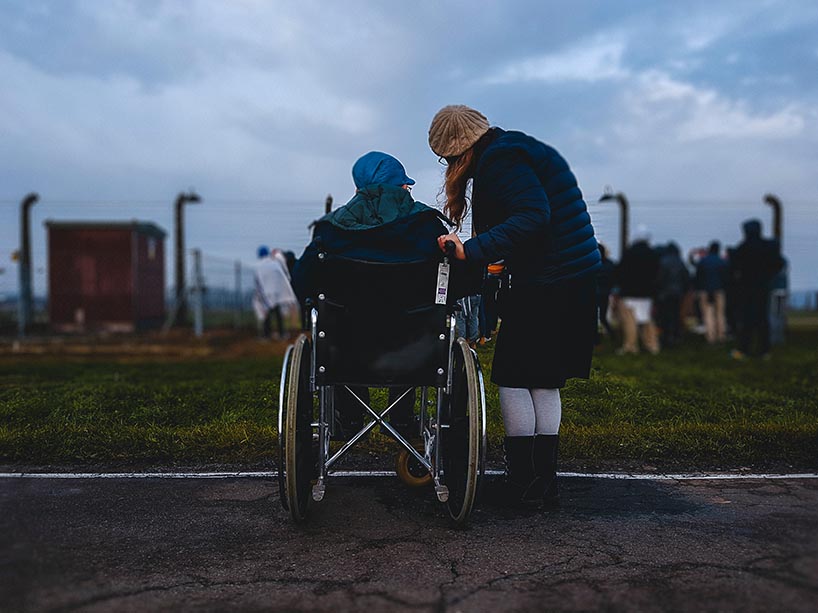Here’s how you can participate in Holocaust Education Week at TMU

Hillel TMU, the centre for Jewish life at the university, has been hosting Holocaust Education Week since 2017 to strengthen our knowledge of the Holocaust and empower the community to fight discrimination and hate. Photo by Josh Appel on Unsplash
CW: This article mentions antisemitism.
The annual Holocaust Education Week at Toronto Metropolitan University seeks to bring awareness and education to the campus community while making time for reflection so that we can learn from the past and continue to combat hate and intolerance.
Organized by Hillel TMU (external link) in collaboration with the university and the TMU Students’ Union, this year’s events will take place on campus from Monday, Nov. 6 to Thursday, Nov. 9.
“Holocaust Education Week is an opportunity for students to get immersed in history and hear diverse perspectives,” said Malka Daniels, chair of the Holocaust Education Week organizing committee. and a TMU student in the business management program.
“The goal of this week is ultimately to educate on historical disadvantages faced by a variety of communities and be able to ensure that issues from the past don't happen again. Holocaust education does not only impact Jewish individuals. We will also be highlighting the experiences of other marginalized communities during the week’s events.”
Participate in the 2023 Holocaust Education Week and register for the events listed below (external link) .
The Unknowable: Untold Stories of the Holocaust
Dates: Monday, Nov. 6 and Tuesday, Nov. 7, 11:00 a.m. to 3:00 p.m.
Location: SLC lobby
Explore this compelling photo exhibition that showcases unknown and untold stories of the Holocaust through artefacts and photography. Curated by the Toronto Holocaust Museum, the exhibit includes precious and everyday objects that reflect the lives of those who survived, and those who did not.
Lessons from the Holocaust: antisemitism and hate crime in Canada today
Date: Wednesday, Nov. 8, 1:00 to 2:00 p.m.
Location: Registration is required. Event location will be emailed to all registered participants the day before.
Join guest speaker Daniel Panneton from Friends of Simon Wiesenthal Centre for an important discussion about how lessons learned from the past can be applied today in the fight against hate.
Friends of Simon Wiesenthal Center (FSWC) is one of Canada’s leading human rights and social advocacy organizations that works to build a more inclusive and respectful Canada by sharing the lessons of the Holocaust, advocating for human rights and combatting antisemitism and hate in all its forms.
Daniel Panneton is the FSCW’s director of allyship and community engagement. He speaks regularly on issues related to Holocaust memory, online hate, antisemitism and extremism. Learn more about his work on the centre’s website (external link) .
Memorial ceremony and survivor testimony
Date: Thursday, Nov. 9, 6:00 to 8:00 p.m.
Location: Registration is required. Event location will be emailed to all registered participants the day before.
Honour the lives and experiences of those who lived through the Holocaust and those who live with the generational trauma and harm that continues till today. Guests will have the opportunity to meet Holocaust survivor Sol Nayman and hear his inspiring story.
Nayman was born in Stoczek Wegrowki, Poland on Nov. 5, 1935. In September 1939 Nayman escaped with his family to the forest and then to the Soviet Union. They were sent to a labour camp in Syktyvkar in Komi, just south of the Arctic circle and later to another labour camp in Ukraine. When the war ended, they found themselves in a German camp for displaced persons and stayed there until 1948. That year, Canada was accepting a limited quota of tailors to work in the growing garment industry. They immigrated to Canada in 1948 and first settled in Montreal, later moving to Toronto where Nayman helped create a major clothing label. He and his wife Queenie have two sons and five grandchildren.
Related stories: